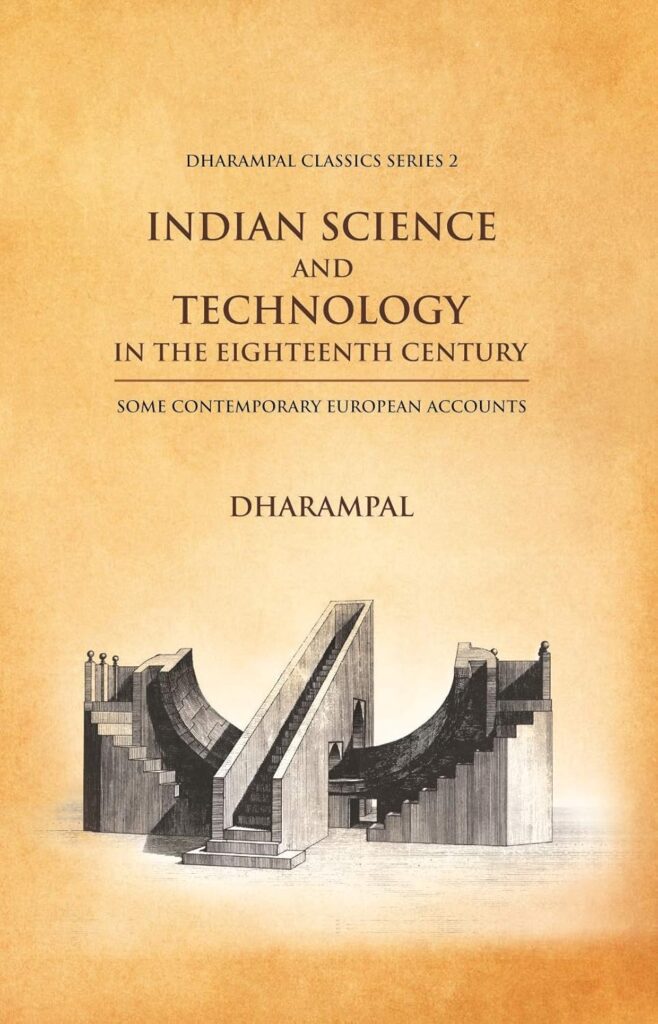

Dharampal’s Indian Science and Technology in the Eighteenth Century (1971) challenges colonial narratives that dismissed India’s pre-colonial scientific and technological advancements. Drawing on archival sources, the book reveals the depth and sophistication of Indian innovations before British colonization disrupted indigenous knowledge systems. It aims to highlight the overlooked achievements of Indian society and inspire renewed pride in the nation’s scientific heritage.
Key Concepts
- Advanced Indigenous Knowledge:
Dharampal presents evidence of India’s significant contributions to fields like agriculture, metallurgy, medicine, and astronomy in the 18th century. - Colonial Disruption:
The book critiques how colonial rule systematically devalued and marginalized traditional Indian knowledge systems, leading to their decline. - Scientific Practices Rooted in Society:
The research highlights how Indian scientific practices were closely integrated with everyday life, benefiting diverse communities and promoting sustainability. - Archival Evidence:
Dharampal utilizes records from British archives, including surveys, official reports, and accounts from European travelers, to substantiate India’s advanced technological systems during this period. - Reclaiming Cultural Confidence:
The book advocates for a re-examination of India’s past to inspire confidence in its cultural and intellectual legacy.
Implications
Dharampal’s work has profound implications for contemporary discourse on science, education, and national identity:
- Reviving Traditional Knowledge: The insights can guide efforts to integrate traditional practices with modern science, particularly in areas like sustainable agriculture, medicine, and water management.
- Decolonizing Education: The book underscores the importance of teaching indigenous knowledge in schools and universities, challenging Eurocentric narratives.
- Inspiring Innovation: Recognizing India’s historical achievements can inspire a new generation of innovators to build on the nation’s rich scientific tradition.
Related Books
- The Beautiful Tree by Dharampal
Explores India’s indigenous educational systems before colonial interference. - The Lost River: On the Trail of the Sarasvati by Michel Danino
Investigates India’s ancient civilizational roots through scientific and historical evidence. - A Concise History of Science in India edited by D. M. Bose, S. N. Sen, and B. V. Subbarayappa
A comprehensive overview of India’s scientific achievements across centuries.
Further Readings
- Guha, R. (2014). India After Gandhi: The History of the World’s Largest Democracy.
- Sen, A. (2005). The Argumentative Indian: Writings on Indian History, Culture, and Identity.
- Panikkar, K. N. (1995). Culture, Ideology, Hegemony: Intellectuals and Social Consciousness in Colonial India.


